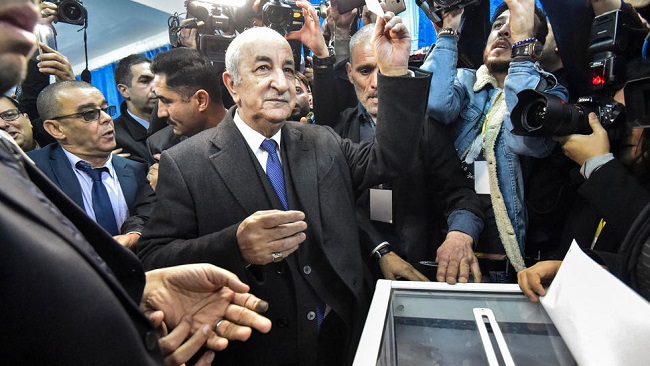Algeria: Concerns grow over president’s whereabout
It’s been a month since Algerian President Abdelmadjid Tebboune was transferred to Germany for a specialized medical treatment. He has yet to return to the country.
The 75-year old was transferred on Wednesday October 28th a day after the presidency announced his hospitalization without explaining the cause.
Senior officials in Tebboune’s entourage in Algiers had developed symptoms for the novel coronavirus. The president was placed in what the government called ‘’voluntary preventive confinement.’’
It is not clear whether the Algerian president’s hospitalization was connected to exposure. State Television reported that his condition was stable.
The absence of president Tebboune has raised concerns about the vacancy of power as was the case during the hospitalization of former president Abdelaziz Bouteflika abroad after his serious stroke in 2013.
His brother Said Bouteflika then took over the reins of leadership and tried to impose a 5th term of office for Mr. Bouteflika. This forced Algerians to take to the streets in February 2019. Mr. Bouteflika stepped down on April 2 that same year under the double pressure from the army and the unprecedented and peaceful popular Hirak uprising.
Since his absence from the country to Cologne, Germany aboard a French medical plane, according to Algerian media, six communiqués, sometimes contradictory, have been issued by the presidency.
Following announcement on October 28 that Mr. Tebboune was hospitalized in Germany for “thorough medical examinations”, the presidency explained the next day that he was receiving “adequate treatment adding that his state of health was “stable and not worrying”, without indicating what the president was suffering from.
On November 3, the presidency announced that he was infected with Covid-19. Five days later, it indicated that the head of state was “on the verge of completing his treatment”. Then on November 15, another statement said that he had completed his treatment and was undergoing “medical examinations”.
Source: Africa News





